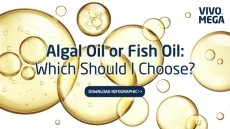GRAS status, milder taste to broaden market for organic spirulina, Valensa says

The company announced at the Supply Side West trade show in Las Vegas that its spirulina from parent company Parry Nutraceuticals, has received a “no objection” letter on its GRAS application for the ingredient. It is the only organic spirulina to receive achieve that status, according the the company.
The GRAS filing covers the ingredient for use in beverages, breakfast cereals, fresh fruits and fruit juices and a host of other food products, both whole and processed. The approved dosage range is 0.5-3 grams per serving. Valensa worked with Seattle-based scientific and regulatory consultancy AIBMR on the GRAS filing.
As it has with other ingredients, the highest level of GRAS status will boost demand for the ingredient from major CPG companies, said Umasudhan CP, business director for Valensa/Parry.
“We have quite a broad based approval for GRAS. A lot of the big CPG companies are looking for GRAS ingredients with high safety standards,” Uma (the name he uses for North American audiences) told NutraIngredients-USA.
USP verified
In addition to the GRAS filing, the ingredient was also recertified in May 2012 under the Untied States Pharmacopoeia Dietary Ingredient Verification Program. The recertification covers the standards set forth in USP’s new provisional monograph on sprirulina. The USP D-IVP is a rigorous, in-depth process involving auditing, product testing, document review and continuing surveillance activities; and covers GMP compliance.
The ingredient is also compliant with California’s Prop 65 in terms of its content of heavy metals and other trace substances, Uma said.
Cleaning up the taste
All that is fine and good, but big food players aren’t just interested in numbers. All of the regulatory certainty in the world won’t make up for bad taste. Valensa/Parry has been keenly sensitive to that issue, Uma said. Spirulina has a distinct pond-like taste and smell, and organic spirulina tends to taste stronger than the conventially-grown varieties.
“Sprirulina is an algae so it is bound to have that algae taste and smell,” he said.
“We have worked very closely on process improvement over a period of two years,” Uma said. “We had both internal and external taste experts,” who evaluated the product and suggested changes.
The end result was an organic spirulina with a very mild taste and smell, but one that retains all of the natural carotenoids, phycocyanin and chlorophyll-a and other nutritional benefits.
“We are seeing interest in organic spirulina grow into the mainstream of consumers,” said Rudi Moerck, president and CEO of Valensa. “We want to work with food product developers and marketers to deliver the highest value, most consumer-appealing spirulina ingredient to the market.”















